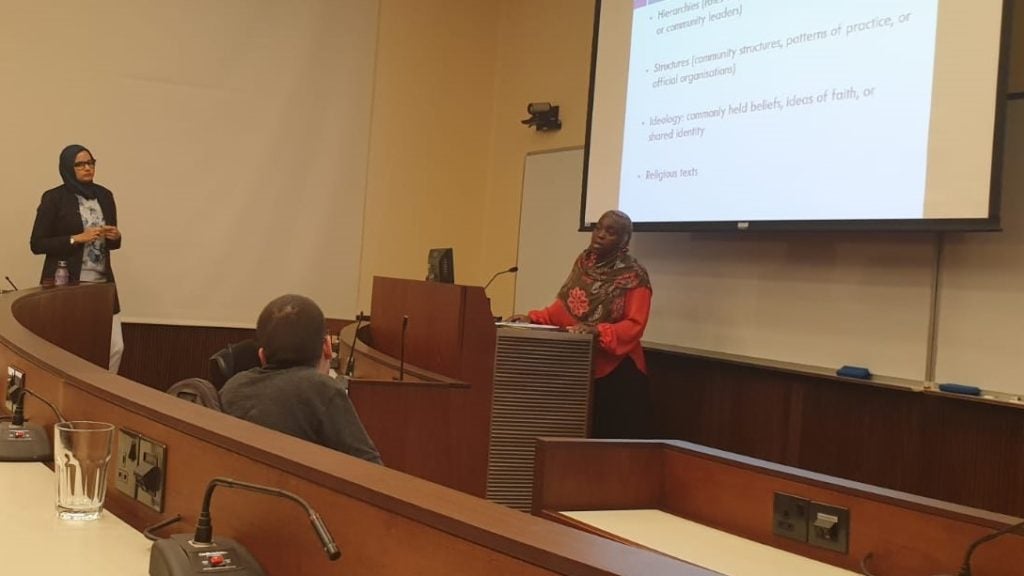Faculty Seminar Explores Modern Islamic Knowledge Transmission

At a recent Faculty Seminar, Dr. Zainab Kabba, the Executive Director of Cambridge Muslim College spoke about the transmission of knowledge in short term intensive Islamic education settings. The talk, titled “Developing Future Pasts: Recalibration of Islamic Tradition in Intensive Education Settings” was moderated by Assistant Professor of Theology, Dr. Sohaira Siddiqui. Using two three-week long intensive programs as case studies, Kabba used narrative ethnography to explore the ways in which modern Western Islamic scholars simultaneously draw from a tradition of Islamic knowledge transmission to establish their authority, and rewrite that tradition.
In her first example she shows how the Deen Intensive Foundation’s Rihla program, held in Konya, Turkey in 2014, both professed to provide “holistic religious learning” where the purpose was to learn the basics of Islamic knowledge, but also provided a specific type of modern educational experience that included sightseeing, zikr, and teaching by celebrity sheikhs such as Sheikh Abdul Hakim Murad, Hamza Yusuf and Imam Zaid Shakir. Kabba shows how these teachers rely on the concept of prophetic and famous historical scholar behaviour modeling to both connect to the original teachings of Islam, and to establish themselves as direct inheritors of premodern Islam and therefore a modern embodiment of Islamic scholarship.
The second example explored the American Learning Institute for Muslims (ALIM) summer intensive program in Detroit, Michigan. Here the aim of the program was to give a thorough grounding in Islamic knowledge, focusing on the practice of Islam as a lived experience expressed based on context and culture. Well known American scholars such as Professor Sherman Jackson taught this program, which explored the development of Islam in America and highlighted through personal stories and visits to local mosques and museums, how Islam is authentically lived and experienced in individual contexts.
Both of these intensive learning programs take as their primary audience young college educated adults from 18-30 years old. Kabba points out that these young adults are participating both in the imbuing of authority to the teachers of these programs, and rewriting of Islamic knowledge transmission through the use of hierarchies, structures, ideology, and religious texts. This research is part of a larger book project titled Knowledge and Authority in the Education of American Muslims.
Dr. Zainab Kaaba is the Executive Director of the Cambridge Muslim College, founded in 2008 with the mission of developing Muslim faith leadership through world-class education, training and research based on a dialogue between the Islamic intellectual tradition and the ideas and circumstances of the modern world. She holds a D.Phil in Education from the University of Oxford, and degrees from Columbia and Stony Brook Universities.